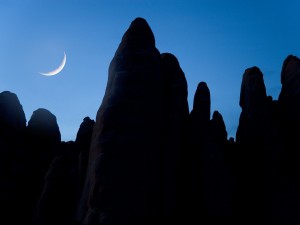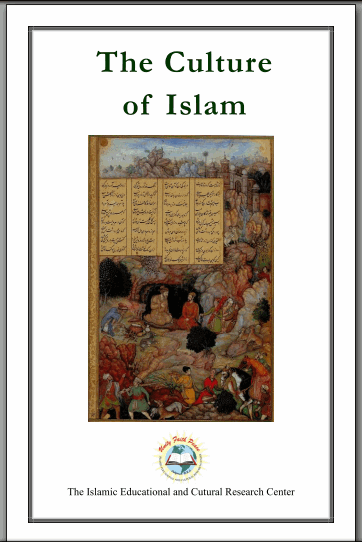Category Archives: Uncategorized
The Nature of Fasting
Have you not seen the stick of incense?
Burn itself to ashes it must
So others might receive its fragrance
The nature of giving is such
Have you noticed the leaves of tea?
How they must withstand hot water
Soothing the nerves of one and many
Through their exquisite and sundry a flavor
Have you noticed the green trees?
How they must absorb the heat of the sun
Giving the traveler a shade to please
And producing life-sustaining oxygen
Have you not seen the ore of metal?
How it must melt in the heat of the kiln
So the impurities may burn or settle
And the precious metal we may dress in
Have you noticed the black coal?
How it must withstand tremendous pressure
For years and years to reach its goal
To become a diamond for our pleasure
Have you not seen our father and mother?
How they give up everything
So their children can be more than better
And can have the best upbringing
And our Beloved Prophet Muhammad
Countless Prayers and Peace of Allah be upon him
How he stayed up all night, never tired
Continuously praying to Allah to forgive our sins
Such indeed is also the nature of fasting
To increase within us, the spirit of service
The self, must always be annihilating
And truly in this, is lasting bliss
Syeda Shagufta Ahmad Qadri
Eid ul-Fitr as Explained by Hazrat Shaykh Abdul Qadir Jilani (1077-1166)
The Festival of Breaking Fast after Ramadan came to be called Eid for the simple reason that Allah Almighty restores joy and happiness to His servants on their day of festive celebration. The Arabic noun “Eid†or “Id†is derived from a three consonant root which conveys the basic notion of “returningâ€.
Many other explanations have been suggested, including the following sayings:
“It came to be called Eid for the simple reason that it contains the benefits of goodness bestowed by Allah Almighty, and the favors of generous grace conferred by Him upon His servant.â€
“The explanation is that the servant returns at that time to humble entreaty and weeping, and the Lord (Almighty and Glorious is He) returns at that time to the giving of presents and the granting of gifts.â€
“When people celebrate the Eid, it means that they have returned to their previous condition from the state of purity experienced while keeping the fast.â€
“It signifies that they have returned from obeying Allah Almighty directly to obeying the Messenger (Peace Be Upon Him) (this Arabic calligraphy means ‘May Allah bless the Holy Prophet (Peace Be Upon Him) and grant Him peace’), from the religious practice that is strictly obligatory to that which is customary but not compulsory and from the Fast of Ramadan to the fast of six days in the month of Shawwal.â€
“It came to be called Eid for the simple reason that the believers are told at that time: ‘Return to your dwelling places, knowing that you have been granted forgiveness!’â€
“It came to be called Eid because it is an occasion for remembering the promise and the threat, the Day of requital and superabundance, the Day of emancipation for the bondmaids and the male slaves, the approach of the Lord of Truth to His creatures near and far, and the reality of contrition and repentance from the feeble servant to the One who is All-Forgiving and Ever-Loving.â€
It was Wahb ibn Munabbih (may Allah have mercy on him) who said:
“Allah created the Garden of Paradise on the Day of Breaking the Fast; He planted the Tree of Bliss (Tooba) on the Day of Breaking the Fast; He chose Angel Gabriel (peace be upon him) as the conveyer of inspiration on the Day of Breaking the Fast; and the sorcerers found forgiveness on the Day of Breaking the Fast.â€
The Prophet (Peace Be Upon Him) is reported as having said:
“When the Day of Breaking the Fast comes around, and the people emerge from their homes to pray in the open space near the burial ground, Allah Exalted in He, will take notice of them, and He will say: ‘My servants, for My sake you have kept the fast, and for My sake you have performed the prayers. Now take your leave, knowing that you have been granted forgiveness!’â€
The following Hadeeth of the Holy Prophet (Peace Be Upon Him) is one of those reported on the authority of Hazrat Ibn Abbas (may Allah be pleased with him and his father):
“When the month of Ramadan is over, and the Night of Breaking the Fast has arrived, that night is called the Night of Prize. Then, in the early morning of the Day of Breaking the Fast, Allah Most Exalted is He, will send His angels forth to visit all the towns and cities on the earth below. Once they have made their descent, they will position themselves at the entrances to all the streets and alleys. There, in a voice that is audible to every being created by Allah Most Exalted is He, apart from the jinn and humankind, they will issue a proclamation, saying: ‘O Community of Muhammad (Peace Be Upon Him), come forth into the presence of a Noble and Generous Lord, who will grant you gifts in abundance, and forgive your terrible sin!’
Then, when the believers have emerged and presented themselves at their place of prayer, Allah Most Exalted is He, will say to His angels: ‘O My angels!’ They will respond to His call by saying: ‘We wait intent upon Your service, time and time again, and upon aiding Your cause, time and time again (labbaika wa sa’daik)!’ Then He will say to them: ‘What is the recompense of the hired laborer, once he has done his job?’ The angels will reply: ‘Our God and our Master and our Lord, You will pay him his wages in full!’ So the All-Majestic One will say: ‘I now call upon you to bear witness, O My angels, that I have conferred My acceptance and My forgiveness, as the reward for their fasting and the night vigil during the month of Ramadan.’ Then He will say: ‘O My human servants, put your requests to Me now, for this I swear, by My Might and My Majesty: You will not ask me this day, in this gathering of yours, for anything connected with your life hereafter, without My granting it to you; nor for anything connected with your life in this lower world, without my attending to your need. By My Might and My Majesty, I will surely condone the false steps you make, as long as you are consciously alert in the effort to avoid incurring My displeasure. By My Might and My Majesty, I will not put you to shame, nor will I expose you to disgrace amongst those who are faithfully committed to observing the statutes (hudood). Now you may depart, knowing that you have been forgiven. You have won My approval, and I am well pleased with you.’
The angels will then be very happy, as they welcome the good news of all that Allah Almighty and Glorious is He, will bestow upon this Community, when its members break the fast they have kept through the month of Ramadan.â€
The above excerpt was taken from Al-Ghunya li-Taalibi Tareeq al-Haqq by Shaykh Abdul Qadir Jilani (may Allah be pleased with him) translated from the Arabic by Haaji Muhtar Holland into Sufficient Provision for Seekers of the Path of Truth. (Al-Baz Publishing, Inc., Florida, 1997)
Shaykh Abdul Qadir Jilani (may Allah be pleased with him) is one of the greatest scholars and Saints of the Islamic tradition, and fountainhead of the Qadri Spiritual Order. He was born in the Iranian district of Gilan, south of the Caspian Sea, in 470 Hijri (1077 CE). Having lived a life of extreme piety, sacrifice, service, and devotion to Allah Almighty and His Messenger (Peace Be Upon Him), he passed onto the Realm of Divine Beatitude on the 11th of Rabi-uth-Thani, 561 Hijri (1166 CE). He rests in the city of Baghdad, Iraq. His blessed mausoleum is a place of pious visitation from devotees around the world.








